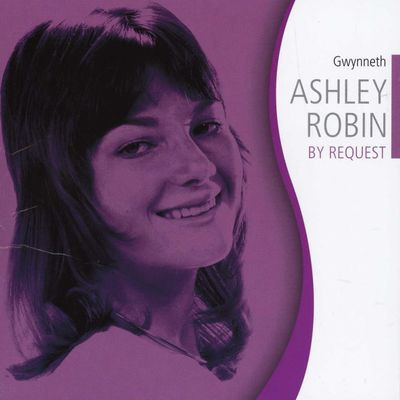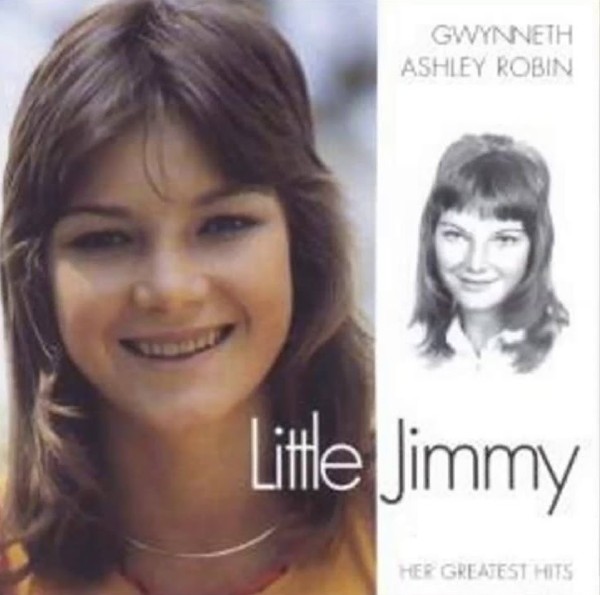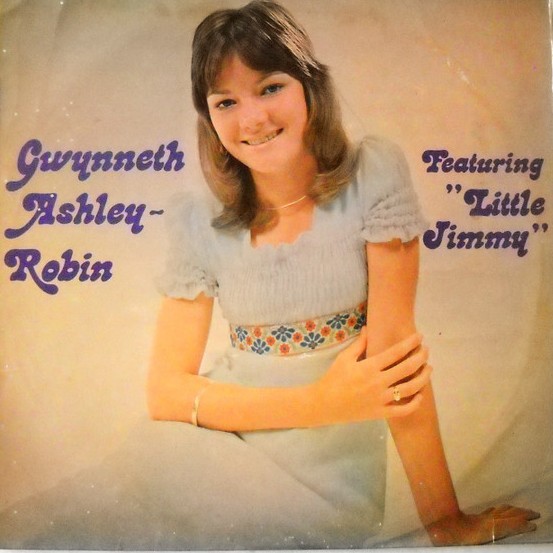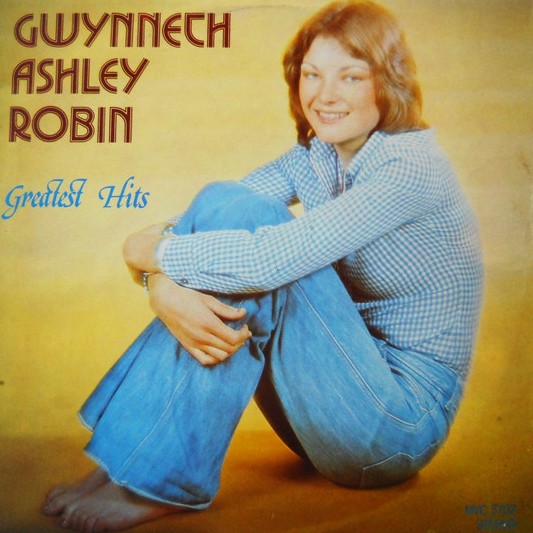

The online South African Rock Encyclopedia covers the history of South African rock music from the 1950s up to the early 2000s. All this information is made freely available to the public.
Home > Rock Legends > 1970s > Gwynneth Ashley Robin

Gwynneth Ashley Robin - By Request [2004]

Gwynneth Ashley Robin - Her Greatest Hits [1997]
Gwynneth Joubert was born on 20 August 1960 as the oldest of three children. She started singing with various bands at the age of nine at her father's pleasure resort, Robinson Lake, near Randfontein. She was "discovered" by singer Jody Wayne, who was engaged for several performances at the resort. Impressed by her talent, Jody took Gwynneth under his wing and helped the young performer secure a recording contract with Teal Records. Jody also wrote and produced most of Gwynneth's recording material. Gwynneth's mother, Val, was pregnant with the family's third child (the second oldest is daughter, Vanessa). She and husband Chris decided to name the baby Ashley, should it be a girl. A boy was born and they named him Brenton. When the family had to choose a stage-name for Gwynneth, "Ashley" came to mind and "Robin" was derived from Robinson Lake - to honour the birthplace of Gwynneth's singing career.
12 year-old Gwynneth's first single, Lolly Lu, did not do as well as her record company expected. The single was, in fact, one of several tracks recorded for her first album and was not really earmarked as a single by her producer. After hearing the recording, Teal executives decided to release Lolly Lu as a single, anyway. Producer Jody Wayne had another song in mind for Gwynneth's first single - a ditty that he had penned entitled Little Jimmy. American group, The Osmonds, were very popular locally and in Rhodesia (now Zimbabwe) in the early Seventies (referred to as "Osmond-mania" in the press). The youngest of this musical clan, 10 year-old "Little Jimmy Osmond", had scored a worldwide million-seller with his hit Long Haired Lover From Liverpool in April 1973 (the song spent eight weeks at #1 on the Rhodesian charts and reached #6 locally). Jody thought that a tribute from one young artist to another would be a successful spin-off for Gwynneth's career, since she was twelve at the time and, simultaneously, that the song Little Jimmy would appeal to thousands of Osmond fans - he was right on both counts.

Gwynneth Ashley Robin [1974]
Little Jimmy reached #1 on the Rhodesia's "Lyons Maid Hits Of The Week" chart for two weeks in December 1973. The song reached the #1 on Springbok's Top 20 Hit Parade in March 1974 and spent 14 weeks on the charts. Little Jimmy garnered Gwynneth two Gold Discs - one locally and one for sales in Rhodesia, where the single sold 33 000 copies - a record in that country for the sales of a single at the time. Although Gwynneth was popular locally, she enjoyed Super-Star status in Rhodesia, where she toured several times before undertaking her first country-wide tour locally. She was also popular with Rhodesian soldiers engaged in the bush war of that time, and often performed for them in the operational areas.
Her second hit, Little Soldier Blue, reached #3 on the Rhodesian charts. Little Soldier Blue peaked at no.9 on Springbok's Top 20 hit parade in July 1974 and spent 9 weeks on the charts. Gwynneth received the 1974 Springbok (mini-SARIE) Award as South Africa's Most Promising Female Vocalist. She toured Rhodesia regularly with a host of artists in the popular Meet The Stars shows, including Jody Wayne, Gert Potgieter, Alan Garrity, Barbara Ray, Murray Campbell, Neil Herbert, Don Stanton, Marie Gibson, Jonathan Butler and Lionel Petersen and she also featured as a regular guest on television there.
On 14 May 1976 Gwynneth entered the recording booth to cut her first Afrikaans single. She recorded two songs, Tesame and As Ek 'n Lied Kon Skryf. She was tragically killed a week later along with the members of her backing group (Danie Schoeman, Vic Rall and Robby Potts), in a light aircraft accident at Penge in the Eastern Transvaal.

Gwynneth Ashley Robin - Greatest Hits [1976]
As a star-stuck teenager at the time, I was privileged to see Gwynneth performing on several occasions when she toured Zimbabwe. She was a natural and one can only speculate about the even greater heights that, I am certain she would have reached, had she not been killed at such an early stage in her career. Death is often viewed and experienced as a tragedy - even more so when a young life is nipped in the bud before it can blossom, as was the case with Gwynneth. She left an indelible mark in the hearts of the lives she touched with her music. We're pleased to bring you that magic with the re-issue of Gwynneth's recordings, collected in their entirety here for the first time as a tribute to the girl who really was South Africa's Most Promising Female Vocalist.
Enjoy!
Malcolm Lombard, October 1997.
Special thanks to: Chris and Val Joubert, Jody Wayne, Darryl Heilbrunn, John Engelbrecht, Ian Bossert and Katy Stevens.